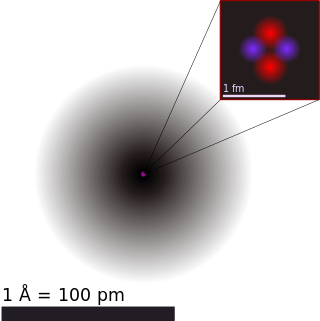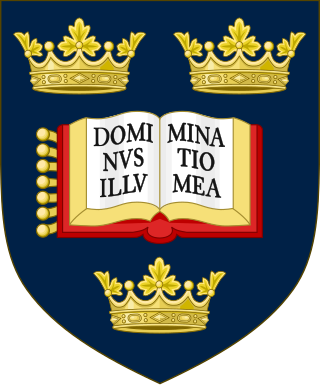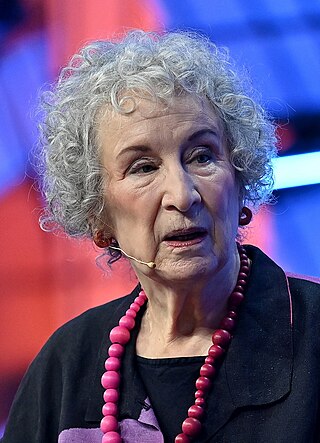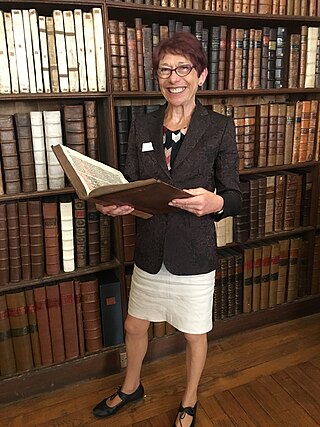Related Research Articles

John Maynard Smith was a British theoretical and mathematical evolutionary biologist and geneticist. Originally an aeronautical engineer during the Second World War, he took a second degree in genetics under the biologist J. B. S. Haldane. Maynard Smith was instrumental in the application of game theory to evolution with George R. Price, and theorised on other problems such as the evolution of sex and signalling theory.
Mathematics is a field of study that discovers and organizes methods, theories and theorems that are developed and proved for the needs of empirical sciences and mathematics itself. There are many areas of mathematics, which include number theory, algebra, geometry, analysis, and set theory.

Richard Dawkins is a British evolutionary biologist, zoologist, science communicator and author. He is an emeritus fellow of New College, Oxford, and was Professor for Public Understanding of Science in the University of Oxford from 1995 to 2008. His 1976 book The Selfish Gene popularised the gene-centred view of evolution, as well as coining the term meme. Dawkins has won several academic and writing awards.

Science is a systematic discipline that builds and organises knowledge in the form of testable hypotheses and predictions about the world. Modern science is typically divided into two or three major branches: the natural sciences, which study the physical world; and the behavioural sciences, which study individuals and societies. The formal sciences, which study formal systems governed by axioms and rules, are sometimes described as being sciences as well; however, they are often regarded as a separate field because they rely on deductive reasoning instead of the scientific method or empirical evidence as their main methodology. Applied sciences are disciplines that use scientific knowledge for practical purposes, such as engineering and medicine.

The University of Oxford is a collegiate research university in Oxford, England. There is evidence of teaching as early as 1096, making it the oldest university in the English-speaking world and the world's second-oldest university in continuous operation. It grew rapidly from 1167, when Henry II banned English students from attending the University of Paris. After disputes between students and Oxford townsfolk, some Oxford academics fled northeast to Cambridge, where, in 1209, they established the University of Cambridge. The two English ancient universities share many common features and are jointly referred to as Oxbridge.

Gender includes the social, psychological, cultural and behavioral aspects of being a man, woman, or other gender identity. Depending on the context, this may include sex-based social constructs as well as gender expression. Most cultures use a gender binary, in which gender is divided into two categories, and people are considered part of one or the other ; those who are outside these groups may fall under the umbrella term non-binary. A number of societies have specific genders besides "man" and "woman," such as the hijras of South Asia; these are often referred to as third genders. Most scholars agree that gender is a central characteristic for social organization.

Margaret Eleanor Atwood is a Canadian novelist, poet, and literary critic. Since 1961, she has published 18 books of poetry, 18 novels, 11 books of nonfiction, nine collections of short fiction, eight children's books, two graphic novels, and a number of small press editions of both poetry and fiction. Her best-known work is the 1985 dystopian novel The Handmaid's Tale. Atwood has won numerous awards and honors for her writing, including two Booker Prizes, the Arthur C. Clarke Award, the Governor General's Award, the Franz Kafka Prize, Princess of Asturias Awards, and the National Book Critics and PEN Center USA Lifetime Achievement Awards. A number of her works have been adapted for film and television.

Jared Mason Diamond is an American scientist, historian, and author. In 1985 he received a MacArthur Genius Grant, and he has written hundreds of scientific and popular articles and books. His best known is Guns, Germs, and Steel (1997), which received multiple awards including the 1998 Pulitzer Prize for general non-fiction. In 2005, Diamond was ranked ninth on a poll by Prospect and Foreign Policy of the world's top 100 public intellectuals.
Susan Haack is a distinguished professor in the humanities, Cooper Senior Scholar in Arts and Sciences, professor of philosophy, and professor of law at the University of Miami in Coral Gables, Florida.

Nancy Cartwright, Lady Hampshire is an American philosopher of science. She is a professor of philosophy at the University of California at San Diego and the University of Durham. Currently, she is the President of the Division for Logic, Methodology and Philosophy of Science and Technology (DLMPST) of the International Union of History and Philosophy of Science and Technology under the International Science Council (ISC).

The Cambridge Philosophical Society (CPS) is a scientific society at the University of Cambridge. It was founded in 1819. The name derives from the medieval use of the word philosophy to denote any research undertaken outside the fields of law, theology and medicine. The society was granted a royal charter by King William IV in 1832. The society is governed by an elected council of senior academics, which is chaired by the Society's President, according to a set of statutes.

The Blue Stockings Society was an informal women's social and educational movement in England in the mid-18th century that emphasised education and mutual cooperation. It was founded in the early 1750s by Elizabeth Montagu, Elizabeth Vesey and others as a literary discussion group, a step away from traditional, non-intellectual women's activities. Both men and women were invited to attend, including the botanist, translator and publisher Benjamin Stillingfleet, who, due to his financial standing, did not dress for the occasion as formally as was customary and deemed "proper", in consequence appearing in everyday blue worsted stockings.

Philosophy is a systematic study of general and fundamental questions concerning topics like existence, reason, knowledge, value, mind, and language. It is a rational and critical inquiry that reflects on its own methods and assumptions.

The works of William Gibson encompass literature, journalism, acting, recitation, and performance art. Primarily renowned as a novelist and short fiction writer in the cyberpunk milieu, Gibson invented the metaphor of cyberspace in "Burning Chrome" (1982) and emerged from obscurity in 1984 with the publication of his debut novel Neuromancer. Gibson's early short fiction is recognized as cyberpunk's finest work, effectively renovating the science fiction genre which had been hitherto considered widely insignificant.
Ruthellen Josselson is an American academic in the field of clinical psychology. Her research focuses on women's identity and human relationships.

Patricia Fara is a college lecturer in the history of science at Clare College, Cambridge. She is a graduate of the University of Oxford and did her PhD at the University of London. She is a former Fellow of Darwin College and is an Emerita Fellow of Clare College where she was previously Director of Studies in the History and Philosophy and Science. Fara was also a College Teaching Officer in the Department of History and Philosophy of Science. From 2016 to 2018 Fara was President of the British Society for the History of Science. In 2016 she became President of the Antiquarian Horological Society. Fara is author of numerous popular books on the history of science and has been a guest on BBC Radio 4's science and history discussion series, In Our Time.

Donald Ross Prothero is an American geologist, paleontologist, and author who specializes in mammalian paleontology and magnetostratigraphy, a technique to date rock layers of the Cenozoic era and its use to date the climate changes which occurred 30–40 million years ago. He is the author or editor of more than 30 books and over 300 scientific papers, including at least 5 geology textbooks.
Sarah Chapone, born Sarah Kirkham and often referred to as Mrs Chapone, was an English legal theorist, pamphleteer, and prolific letter writer. She is best known for the treatise The Hardships of the English Laws in Relation to Wives, published anonymously in 1735.

Helen Gertrude Klaassen was an English physicist.
References
- 1 2 "The Spirit Of Inquiry | Cambridge Philosophical Society". www.cambridgephilosophicalsociety.org. Retrieved 4 September 2024.
- ↑ "Susannah Gibson - Four Way Interview". popsciencebooks.blogspot.com. Archived from the original on 8 September 2024. Retrieved 4 September 2024.
- ↑ Flannery, Michael A. (1 July 2020). "Making room for science". Metascience. 29 (2): 211–216. doi:10.1007/s11016-020-00523-1. ISSN 1467-9981. Archived from the original on 8 September 2024. Retrieved 4 September 2024.
- ↑ "The Spirit of Inquiry: How One Extraordinary Society Shaped Modern Science". www.nhbs.com. Archived from the original on 8 September 2024. Retrieved 4 September 2024.
- ↑ Thomas-Corr, Johanna (3 March 2024). "Bluestockings by Susannah Gibson review — England's first feminists". www.thetimes.com. Archived from the original on 8 September 2024. Retrieved 4 September 2024.
- ↑ Gurdon, Meghan Cox (26 July 2024). "'The Bluestockings' Review: Learning Was in Fashion". WSJ. Archived from the original on 8 September 2024. Retrieved 4 September 2024.
- ↑ Wade, Francesca (22 July 2024). "Book Review: 'The Bluestockings,' by Susannah Gibson". The New York Times. Retrieved 4 September 2024.
- ↑ Talbot, Margaret (15 July 2024). "The Original Bluestockings Were Fiercer Than You Imagined". The New Yorker. ISSN 0028-792X. Archived from the original on 8 September 2024. Retrieved 4 September 2024.
- ↑ "Book Marks reviews of The Bluestockings: A History of the First Women's Movement by Susannah Gibson". Book Marks. Archived from the original on 8 September 2024. Retrieved 4 September 2024.
- ↑ Woods, Hannah Rose (20 February 2024). "The women that books built". New Statesman. Archived from the original on 8 September 2024. Retrieved 4 September 2024.
- ↑ "Bluestockings by Susannah Gibson: How one group of women changed the world". The Irish Times. Archived from the original on 8 September 2024. Retrieved 4 September 2024.
- ↑ Gibson, Susannah (December 2012). "On Being An Animal, or, the Eighteenth-Century Zoophyte Controversy in Britain". History of Science. 50 (4): 453–476. doi:10.1177/007327531205000404. ISSN 0073-2753. Archived from the original on 24 February 2023. Retrieved 4 September 2024.
- ↑ Ferry, Georgina (19 February 2019). "The society that turned Cambridge into a scientific powerhouse". Nature. 566 (7744): 324–325. doi:10.1038/d41586-019-00608-w. Archived from the original on 8 September 2024. Retrieved 4 September 2024.
- ↑ Cantor, Geoffrey (21 February 2019). "The Spirit of Inquiry: How One Extraordinary Society Shaped Modern Science, by Susannah Gibson". Times Higher Education (THE). Archived from the original on 8 September 2024. Retrieved 4 September 2024.